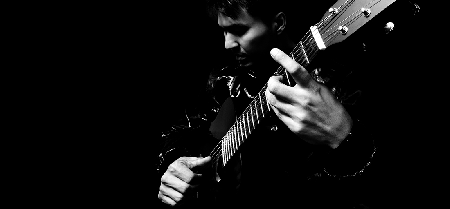Bandvista Blog

When A Show Goes wrong – 5 Tips for Handling It
Every musician, no matter how experienced, has bad gigs from time to time. It's an inevitability, and while it's always a stressful experience, having a show go wrong can be handled with professionalism and grace. Here are five tips for when a show goes wrong – and how you can save the day.
Stay Calm
When something goes wrong at a show, it's a totally natural response to feel panic and even fear. It can be especially palpable if it's your first show, or it's in the middle of a tour. If something goes wrong, take a minute to focus yourself, take some deep breaths, and get centered. Staying calm will help you from both a social and a pragmatic standpoint – you won't have any fans or other professionals witness you having a full-blown freakout, and if you're calm, you'll be better equipped to solve whatever the problem is.
Focus On Solutions
Don't spend time arguing over whose fault it is or how it happened – focus on fixing it. Whether it's a blown drumhead or a technical issue, focus your efforts on solving the problem. Argument and speculation won't help you fix the problem, and it will cost you precious time in a live environment. Your only speculation should be about possible fixes for whatever's wrong.
Don't Get Confrontational
Even if it's obvious that an issue is a particular person's fault, don't get confrontational with them. Include them in the process of helping to solve the problem, whether it's one of your bandmates or the audio tech assigned to your event. If you handle things professionally, they will usually be much more on board with enthusiastically collaborating to solve the issue, and it's likely that they'll apologize for the mistake, too. Confronting them will put them on the defensive and make them less willing to help – and you might not get an apology, either.
Ask How You Can Help
If you're not personally handling the issue at hand, ask the person or people who are how you can help. If there's nothing you can do to assist, just stand back and let them work through the solution process; but if they ask you to do something that you are able to do, do so without complaint or delay. Helping will hasten the process of solving the problem; but even if you can't help, the person whom you offered to help will probably be better disposed towards you and may work harder to solve the problem quickly.
Follow Up
Sometimes it is appropriate to follow up with the venue or promoter – for better or for worse. If you were faced with an issue that was resolved quickly and professionally, give props to the problem solver. If your show was a complete disaster due to lack of professionalism or skill, that is also something the venue or promoter should know about. Be courteous and professional with your follow-up, but be honest – the venue may need better staff, and if you want to play there again, that will help you too.
There is always potential for something to go wrong at a show, whether a minor issue or a legitimate disaster. However, these tips will not only help you weather things better, they'll help you build a good reputation as a helpful and reasonable person and a musician who is easy to work with – and those sorts of musicians are favorites among venues and promoters alike!










